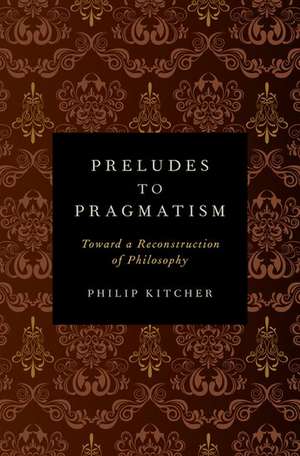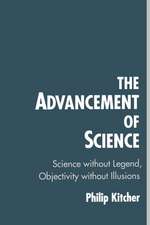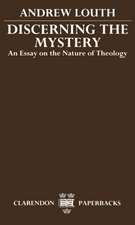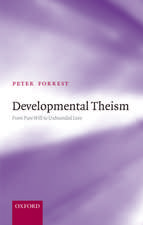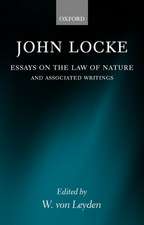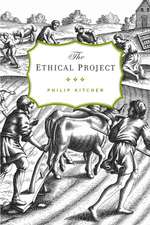Preludes to Pragmatism: Toward a Reconstruction of Philosophy
Autor Philip Kitcheren Limba Engleză Hardback – 29 noi 2012
Preț: 429.66 lei
Preț vechi: 547.11 lei
-21% Nou
Puncte Express: 644
Preț estimativ în valută:
82.24€ • 89.36$ • 69.13£
82.24€ • 89.36$ • 69.13£
Carte tipărită la comandă
Livrare economică 09-15 aprilie
Livrare express 15-21 martie pentru 234.03 lei
Preluare comenzi: 021 569.72.76
Specificații
ISBN-13: 9780199899555
ISBN-10: 019989955X
Pagini: 464
Dimensiuni: 160 x 236 x 46 mm
Greutate: 0.73 kg
Editura: Oxford University Press
Colecția OUP USA
Locul publicării:New York, United States
ISBN-10: 019989955X
Pagini: 464
Dimensiuni: 160 x 236 x 46 mm
Greutate: 0.73 kg
Editura: Oxford University Press
Colecția OUP USA
Locul publicării:New York, United States
Recenzii
Preludes to Pragmatism is an important and rewarding book.
In this lively and lucid collection of essays, Philip Kitcher--one of America's leading philosophers--seeks to further the reform of philosophy inspired by the pragmatic tradition of James and Dewey. Critical of the current state of Anglophone philosophy, he develops a pragmatic naturalism that deals with some of the most pressing cultural issues of our time-including the meaning of value in contemporary society and the reconciliation of science and religion. Anyone interested in the creative potential of pragmatism for the reconstruction of philosophy today will find this insightful book invaluable.
In articles ranging from metaphysics and philosophy of mathematics to ethics and the philosophy of religion, Preludes to Pragmatism develops and makes a powerful case for pragmatic naturalism. By drawing on, extending, and emending ideas drawn from the classical pragmatists, Philip Kitcher argues that no appeal to transcendent, non-natural entities is required to underwrite our deepest theoretical commitments, or rationalize our practices.
Philip Kitcher's Preludes to Pragmatism offers a radical 'reconstruction of philosophy' which aims to renew the projects of William James and John Dewey. Advocating a form of 'pragmatic naturalism,' Kitcher's aim is not simply to use pragmatist ideas as material for a more sophisticated reformed 'normal philosophy.' Rather than using pragmatist ideas to provide better solutions to familiar problems, he follows Dewey in seeking to 'liberate philosophy' from familiar questions that can now be transcended. Whether discussing atheism or secularism, race or altruism, he meets familiar views with pragmatist challenges that can change the philosophical terrain. In doing so, he contributes to the truth of his claim that pragmatism is one of the most significant developments in the history of philosophy.
In this lively and lucid collection of essays, Philip Kitcher--one of America's leading philosophers--seeks to further the reform of philosophy inspired by the pragmatic tradition of James and Dewey. Critical of the current state of Anglophone philosophy, he develops a pragmatic naturalism that deals with some of the most pressing cultural issues of our time-including the meaning of value in contemporary society and the reconciliation of science and religion. Anyone interested in the creative potential of pragmatism for the reconstruction of philosophy today will find this insightful book invaluable.
In articles ranging from metaphysics and philosophy of mathematics to ethics and the philosophy of religion, Preludes to Pragmatism develops and makes a powerful case for pragmatic naturalism. By drawing on, extending, and emending ideas drawn from the classical pragmatists, Philip Kitcher argues that no appeal to transcendent, non-natural entities is required to underwrite our deepest theoretical commitments, or rationalize our practices.
Philip Kitcher's Preludes to Pragmatism offers a radical 'reconstruction of philosophy' which aims to renew the projects of William James and John Dewey. Advocating a form of 'pragmatic naturalism,' Kitcher's aim is not simply to use pragmatist ideas as material for a more sophisticated reformed 'normal philosophy.' Rather than using pragmatist ideas to provide better solutions to familiar problems, he follows Dewey in seeking to 'liberate philosophy' from familiar questions that can now be transcended. Whether discussing atheism or secularism, race or altruism, he meets familiar views with pragmatist challenges that can change the philosophical terrain. In doing so, he contributes to the truth of his claim that pragmatism is one of the most significant developments in the history of philosophy.
Notă biografică
Philip Kitcher is a Dewey Professor of Philosophy at Columbia University.
